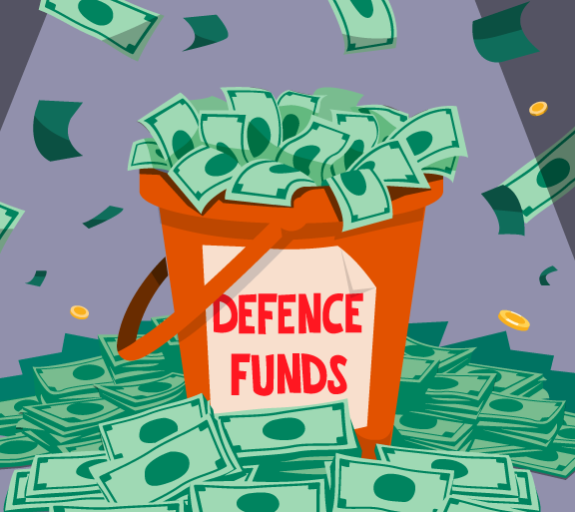
Close Look - Defence funds in demand
- 23 July 2025 (5 min read)
Defence funds in demand
The defence sector has historically been viewed as a steady diversifying investment, benefiting from stable demand, largely backed by government spending. However, mounting geopolitical tensions have brought a sea change in the perception of defence funds, as both short and long term investors have recognised the sector’s potential. This groundswell of interest has led to the launch of new defence funds, often in the form of ETFs (exchange traded funds). As an example, data show that European thematic ETFs focused on defence and AI (artificial intelligence) saw record net inflows of $8 billion in the first half of 2025.
What has happened?
The election of Donald Trump for a second term as US President has coincided with a period of heightened geopolitical tensions. In the US, the “Big, Beautiful” tax cuts and spending bill, looks set to bring significant benefits to the defence sector. The bill adds $150 billion to the Pentagon’s budget, to include $25 billion for Trump’s ‘Golden Dome’ missile defence system, and almost $30 billion for shipbuilding. With the US administration focusing on home grown suppliers, the benefits to the US defence sector could be considerable.
Elsewhere, the US threat of withdrawal of support for NATO (North Atlantic Treaty Organisation) has spurred European members to pledge 5% of GDP to defence spending by 2030, versus current levels of 2-3%. The increase includes a boost to defence-related infrastructure, as well as more traditional defence hardware. After Germany passed a bill to boost its defence and infrastructure expenditure by €1 trillion, European defence stocks soared, reflecting a major uplift to their growth prospects.
Defence sector and ESG
Recent developments within the ESG (Environmental, Social and Governance) segment of the investment industry have provoked controversy. There have been calls for defence funds to be re-classified as ‘ethical’, as defence equipment is also used to protect the lives of civilians. This could eventually allow ESG funds to invest in this strongly performing sector. In the UK, some pension providers have expressed the view that long term investors should invest more in the defence sector, due to its growth potential, although all investors should be allowed the choice.
AXA IM Select view
The defence sector has rallied strongly this year, discounting a good deal of sector specific positive newsflow. Longer term, it is still unclear how the money will be raised to finance plans for increased spending, or where exactly it will be invested. Nonetheless, among other beneficiaries, AXA IM economists foresee a beneficial GDP growth impact of 0.5% for the Eurozone alone.
In line with AXA IM Select’s diversified investment style, investing in a sector by way of ETFs or other funds offers access to a broad range of companies, while limiting the risk of exposure to individual stocks.